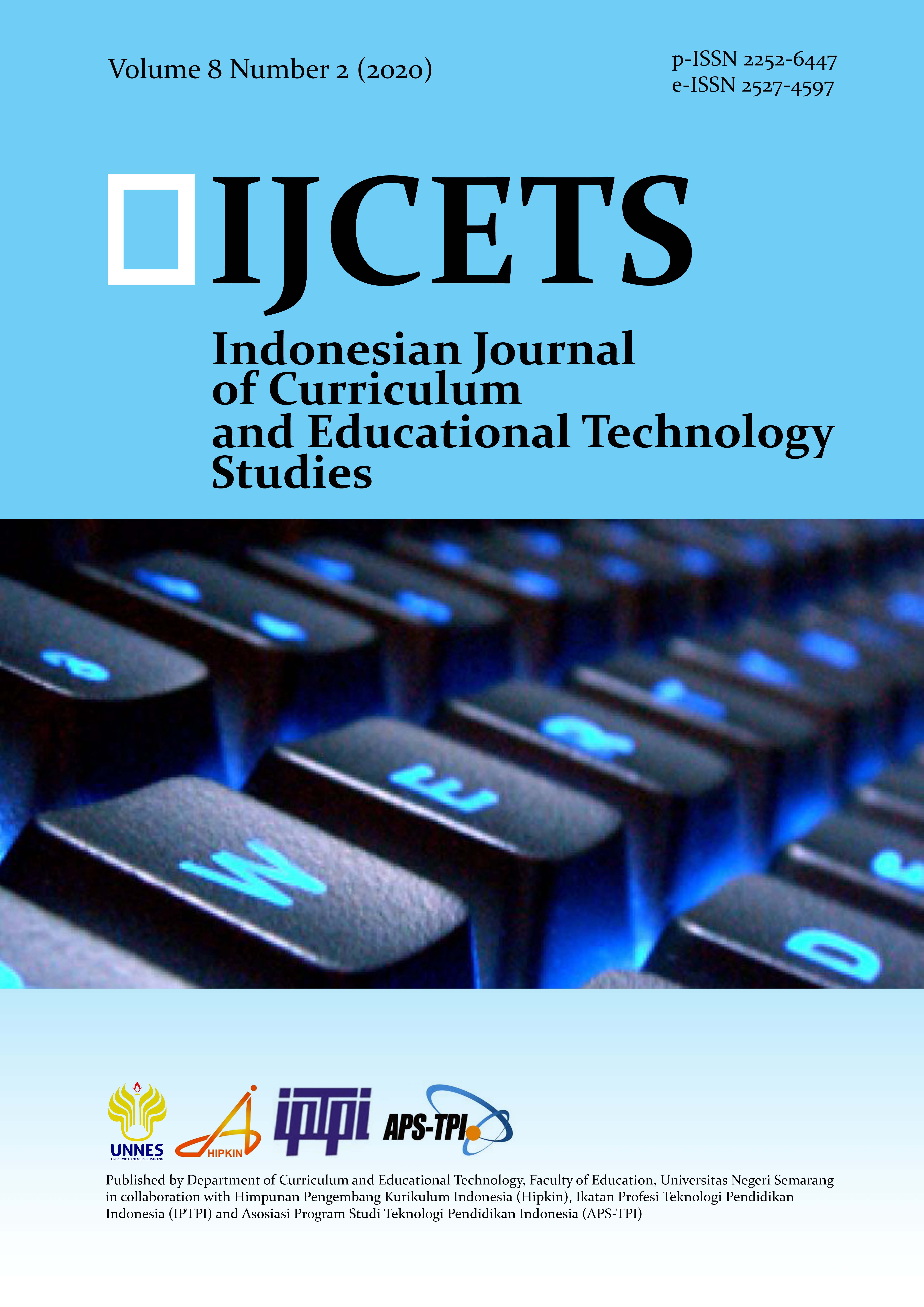Abstract
The significant change in curriculum policy shifts the orientation of how to develop the curriculum no longer based on subject-matter but prioritizes competency as a basis. In Indonesia, for example, in 2004 the government officially issued a new curriculum policy called Competency-based Curriculum in which emphasizes competency or skills as the most important things that the students should gain. According to Priestley and Biesta (2013), this phenomenon is common throughout the world, not only in Indonesia but also in Scotland, UK, Australia, New Zealand, and many more.
Curriculum that emphasizes more on skills or competencies than knowledge gained much criticism from many scholars. One of the most prominent criticisms comes from scholars’ groups who hold strongly social realism as an epistemological foundation. They have a vision to bring back the knowledge into curriculum policy making, because the imbalance of the curriculum more on skills will lead the students to lose the aims, purposes, and direction of education they got involved in. Amidst this issue, Barrett and Rata (2014) published an edited book comprising several articles under the spirit of bringing back knowledge into the curriculum.
References
Apple, M. W. (2004). Ideology and Curriculum (3rd ed.). RoutledgeFalmer.
Au, W. (2012). Critical Curriculum Studies: Education, Consciousness, and the Politics of Knowing. Routledge.
Barrett, B. (2014). Risky Business: The Marginalisation of Knowledge in American Education Reform Since A Nation at Risk. In B. Barrett & E. Rata (Eds.), Knowledge and the Future of the Curriculum: International Studies in Social Realism (pp. 92–103). Palgrave Macmillan.
Bourdieu, P., & Passeron, J.-C. (1990). Reproduction in Education, Society and Culture (R. Nice (Trans.)). SAGE Publications.
Corbel, C. (2014). The Missing “Voice†of Knowledge in Knowledge and Skills. In B. Barret & E. Rata (Eds.), Knowledge and the Future of the Curriculum: International Studies in Social Realism (pp. 104–119). Palgrave Macmillan.
Global Partnership for Education. (2020, January). 21st Century Skills: What potential role for the Global Partnership for Education? A Landscape Review. Globalpartnership.Com. https://www.globalpartnership.org/sites/default/files/document/file/2020-01-GPE-21-century-skills-report.pdf
McPhail, G. (2014). Pathways to Powerful Knowledge: A Case for Music’s Voice’. In B. Barrett & E. Rata (Eds.), Knowledge and the Future of the Curriculum: International Studies in Social Realism (pp. 123–135). Palgrave Macmillan.
McPhail, G., & Rata, E. (2016). Comparing Curriculum Types: ‘Powerful Knowledge’ and ‘21st Century Learning.’ New Zealand Journal of Educational Studies, 51(1), 53–68. https://doi.org/10.1007/s40841-015-0025-9
Moore, R. (2014). Social Realism and the Problem of the Problem of Knowledge in the Sociology of Education. In B. Barrett & E. Rata (Eds.), Knowledge and the Future of the Curriculum: International Studies in Social Realism (pp. 23–40). Palgrave Macmillan.
Morgan, J. (2014). “Neither Existence Nor Futureâ€: The Social Realist Challenge to School Geography. In B. Barrett & E. Rata (Eds.), Knowledge and the Future of the Curriculum: International Studies in Social Realism (pp. 136–152). Palgrave Macmillan.
Ormond, B. (2014). Powerful Knowledge in History: Disciplinary Strength or Weakened Episteme. In B. Barrett & E. Rata (Eds.), Knowledge and the Future of the Curriculum: International Studies in Social Realism (pp. 153–166).
Priestley, M., & Biesta, G. (Eds.). (2013). Reinventing the Curriculum: New Trends in Curriculum Policy and Practice. Bloomsbury.
Rata, E. (2014). Knowledge and Democracy: the Strife of the Dialectic. In B. Barrett & E. Rata (Eds.), Knowledge and the Future of the Curriculum: International Studies in Social Realism (pp. 79–91). Palgrave Macmillan.
Shor, I. (1992). Empowering Education: Critical Teaching for Social Change. The University of Chicago Press.
Subkhan, E. (2019). Does Indonesian Curriculum Studies Exist? International Journal of Innovation, Creativity and Change, 5(5), 406–420.
Trilling, B., & Fadel, C. (2009). 21st Century Skills: Learning for Life in Our Times. John Wiley & Son, Inc.
Young, M., & Muller, J. (2014). On the Powers of Powerful Knowledge. In B. Barrett & E. Rata (Eds.), Knowledge and the Future of the Curriculum: International Studies in Social Realism (pp. 41–64). Palgrave Macmillan.

